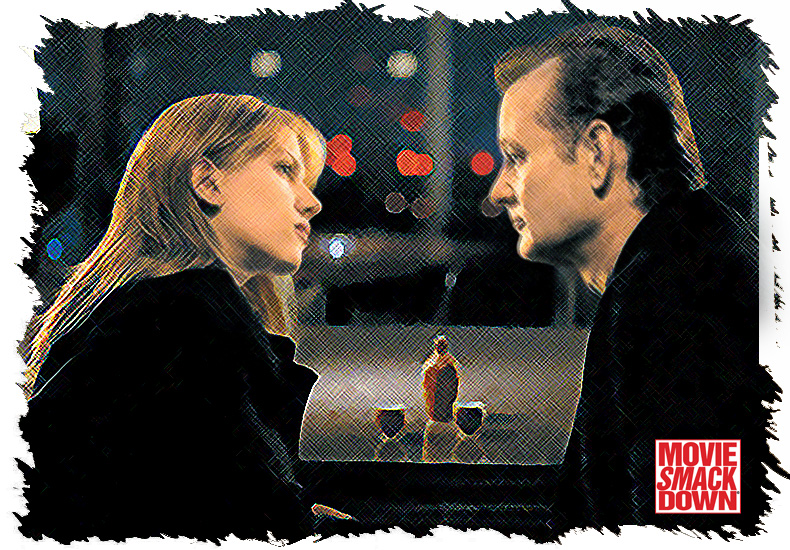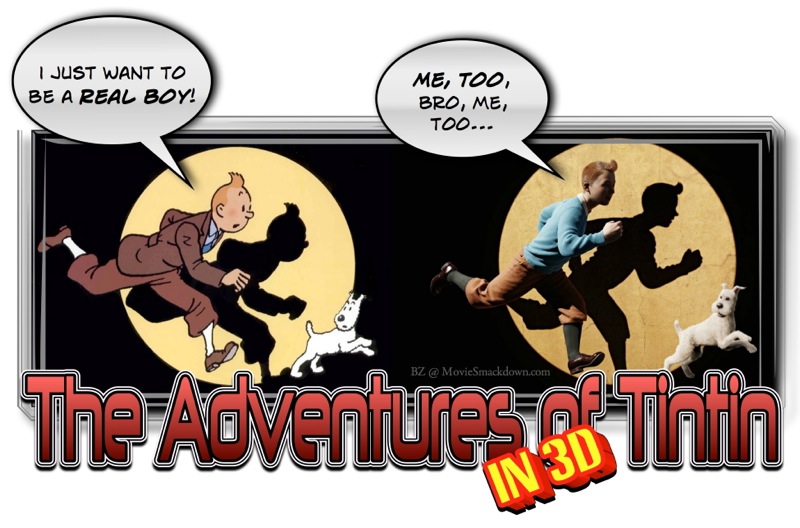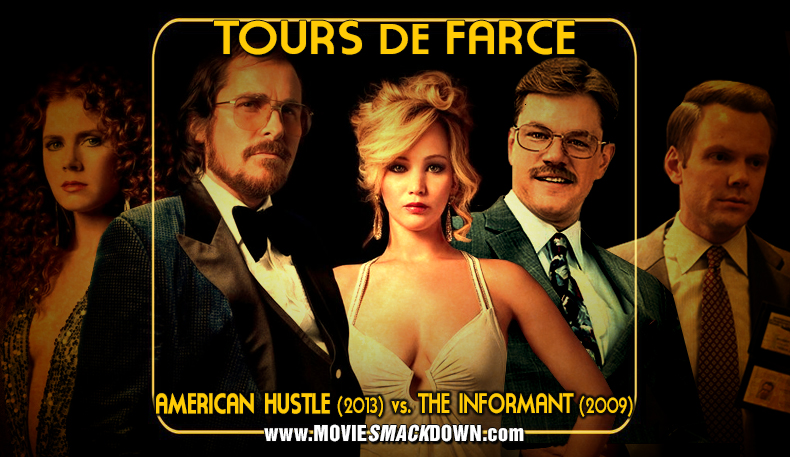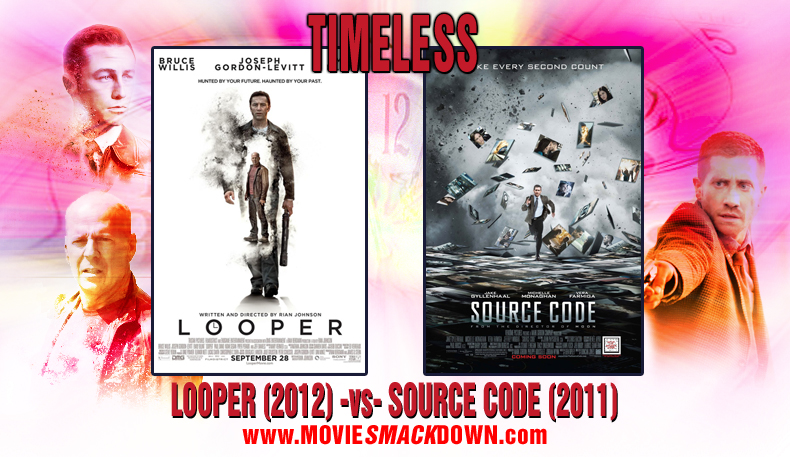
The Smackdown
We here at Smackdown have a soft spot in our hearts for movies about lonely, alienated mopes. This may or may not have something to do with some of us here in Smackland being lonely, alienated mopes, but in any case, we’re all about the Mopelecore movies, and when they’re about how the mopes learn to get out of their mopey shells and embrace the wonders of the world around them, even more so. And when they are brought out of their shells by the likes of Scarlett Johansson? Catnip. Heck, when it’s Scarlett, it doesn’t even have to be a mope, necessarily, it could be some shallow, womanizing, porn-addicted guido for all we care. What we’re getting at here: Consider us Team ScarJo.
But back to the mopes and this week’s Smackdown, in which two Mope-Meets-Jo tales will try to out-sulk each other, and as a special ultra-Smackdown bonus, the writer-directors of each are ex-spouses. Exes fighting each other! Little thing we like to call Ex-Box. (Eh? Eh?)
Anyway… Mopes to your corners! Let’s do this.
 >
>
The Challenger:
We’re in Los Angeles in the near future, apparently not yet Blade Runner era, because things actually look pretty good. The city is clean, the public transportation hums along quietly, home video games are hella cool 3-D (and shockingly profane!), and personal computers are so advanced that everyone works remotely, using a combination of voice commands, an earpiece, and a cigarette case-like monitor that fits in your breast pocket. This is the world of Her, the latest from the ever-eccentric Spike Jonze, director of quirky instant-classic comedies Being John Malkovich (1999) and Adaptation (2002), making his writing/directing debut.
Here he enlists the arguably even more eccentric Joaquin Phoenix for the lead role of Theodore Twombley, a bespectacled, mustachioed sad-sack who makes his living penning personal correspondence on behalf of clients of BeautifullyWrittenLetters.com and is still awash in memories of his recently-ended marriage to Catherine (Rooney Mara).
Enter Samantha, his computer’s new operating system, voiced by Johansson with an irresistible blend of intelligence, empathy, curiosity, wit and sultriness. How hard does Theo fall for her? Let’s just say he’s so distracted that he fumbles a blind date with Olivia Wilde and barely gives a second look to his newly available gal-pal Amy Adams… and we actually kinda get it.
 The Defending Champion:
The Defending Champion:
Sofia Coppola’s Lost in Translation (2003) finds middle-aged Hollywood action star Bob Harris (Bill Murray) (just go with it) alone in Tokyo, glumly drowning his loneliness in the whiskey he’s there to shoot a commercial for. Bob seems world-weary and indifferent to it all: the exotic and colorful city around him, his own fame and wealth, the unromantic phone calls from his wife… It’s going to take more than a surprise visit from an oddly aggressive call-girl to shake him out of his funk, and it arrives in the form of the refreshingly youthful but oddly mature Charlotte (Johansson), a fellow hotel guest left to her own devices most of the day while her photographer husband (Giovanni Ribisi) is out working.
The two drifting, alienated souls bond over drinks, karaoke, and an emergency room visit, quickly developing an oddly intimate friendship that is clearly flecked with mutual romantic stirrings. Much of the film’s tension derives from whether or not these impulses will be acted on, and how these new unlikely soul-mates will leave things when they go their separate ways.
The film has been criticized for its lack of narrative drive, but its sense of personal anomie is real and palpable. To no one’s great shock, director Coppola and Jonze announced their divorce shortly after the film’s release.
The Scorecard:
Aside from the leading actress, both films are distinguished by similar but distinct tones, a gentle, dreamy, bittersweet vibe that all but defies description. Both are made with great affection for their introverted, dour protagonists and impressively succeed at developing the audience’s empathy for them, at bringing us into their heads and letting us see the world through their eyes. Her has slightly more of a plot, but both films are essentially depictions of two characters getting to know each other, of the joy and excitement of discovering a kindred spirit, and the inevitable pain and disappointment of discovering their flaws and weaknesses.
Both also center on remarkable lead performances. Murray hit a career high and scored a Best Actor nomination for his moving, minimalist work that redefined his career as a go-to source of deadpan, world-weary gravitas. And Phoenix (a shoo-in for a nomination) is all but unrecognizable from his ferocious, tic-heavy, over-praised performance in The Master (2012). (His sweet and mild-mannered presence here is more reminiscent of his work in James Gray’s criminally under-seen Two Lovers). His Twombley is instantly lovable and sympathetic, a good-hearted, intelligent and even quietly witty guy with just the right amount of shy dweebiness and vulnerability, but never crossing the line into caricature. It’s genuinely one of the most accurate and touching depictions of an introvert I’ve ever seen.
In both films, the direction and performances go a long way toward fleshing out somewhat thinly drawn scripts. Not to say the writing is bad by any means, but both filmmakers are clearly more comfortable in their directing hats. This may sound especially odd with regard to Lost, which won Coppola an Original Screenplay Oscar, but comparing the script with the final product indicates that a fair amount of improv took place on set. But she chose her lead wisely with Murray, not only a long-time improviser par excellence, but someone whose mere presence and mastery of subtle facial expression clearly rendered a lot of the wordy exposition dispensable.
Her is Jonze’s first original screenplay credit (as Lost was for Coppola), and as intriguing and original a vision as it is, the script feels a tad under-cooked, failing to really explore the possibilities of its off-the-wall premise. Long, long stretches of the movie are simply close-ups of Phoenix talking with Johansson, whose personality is so convincingly human that it basically feels like we’re watching one side of a phone conversation between two nice people. But what would it really be like to date one’s operating system? How does one have a relationship with an entity that is aware of every single thing you do on the computer, sees every web page you surf, reads all your emails and everything you write, whether you want her to or not? Wouldn’t you get a little wigged out about the lack of privacy after a while? These questions don’t interest Jonze enough to ask them.
So in both cases, what lingers in the memory is not the script (the most-discussed element of Lost is in fact a dialogue exchange that we deliberately can’t even hear) (well, not without help, anyway) so much as their unique feel, the odd and singular mood they create, the beauty they find in the seemingly mundane (both are gorgeously shot, Lost by Lance Acord, Her by Hoyte van Hoytema), and certain unforgettable scenes: Murray crooning Roxy Music and Elvis Costello in a karaoke room; Phoenix’s phone sex with an online stranger taking an abrupt demented turn; Murray explaining the joy of child-rearing to an uncertain Johansson as they lounge platonically on a hotel bed; Johansson’s heartbreaking attempt to provide Phoenix with a tangible element for their sex life. And of course, Johansson herself, whose dynamic presence in both films convinces us she has the power to elevate the spirits of even the most dour cases, in one film without ever getting physical, and in the other without even being physical. How many “Sexiest Women Alive†can say that?
The Decision:
Oh man, is this a squeaker. Lost in Translation, even ten years down the road, remains essential viewing, a terrific showcase for its one-of-a-kind stars and their unusual chemistry. It’s one of the most romantic non-romances you’ll ever see. Both films are lovely works of art from distinctive and original filmmakers, but after several back-and-forth trips over the fence, I ultimately come down on the side of Her, for its convincing and fairly (though far from entirely) hopeful vision of the future, and for the wonderful Phoenix performance that I found so poignant and relatable. See it with someone you love… or if you’re streaming, then see it on something you love.





Leave a Reply